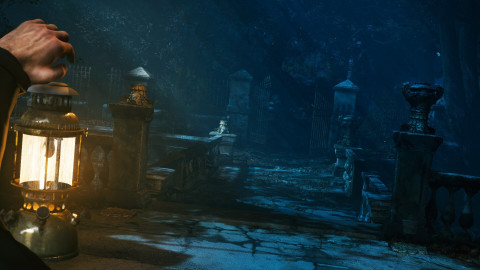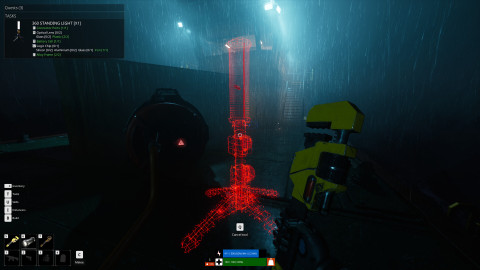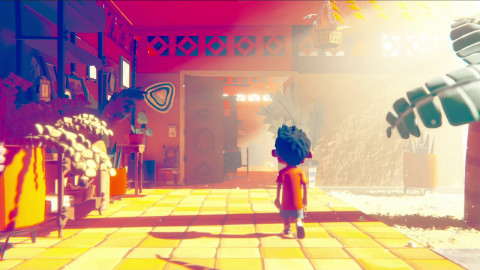
The joint SRPG project between Vanillaware and Atlus, Unicorn Overlord, didn't have the most favorable release timing, considering the presence of major titles before and after its launch. Consequently, there were concerns that Unicorn Overlord, released in the midst of such competition, might not receive much attention. Moreover, SRPGs tend to have divided opinions among gamers.
However, Unicorn Overlord turned out to be a game with solid craftsmanship and enjoyable gameplay, defying expectations set by the gaming community. The demo released prior to the official launch received praise and interest from both SRPG fans and general gamers alike, thanks to its substantial content and engaging gameplay. Continuing to garner such positive feedback post-release, Unicorn Overlord is indeed receiving significant attention and acclaim.
Akiyasu Yamamoto, a producer at Atlus, expressed deep gratitude for the positive response from players, and encouraged players to try out the demo by saying, “If you're intrigued, I highly recommend experiencing the demo to see for yourself."
※ The following is a full translation of Inven’s written interview with Akiyasu Yamamoto.

SRPG is a genre with many classics and nostalgic memories, but it's not always an easy genre to appeal to a wider audience. Why did you decide to create Unicorn Overlord as an SRPG?
Given that Director Noma really loves SRPGs, I've discussed with Director Noma and Main Planner Nakanishi why there's been a discontinuation in the lineage of '90s classic SRPGs and why we're making SRPGs now.
We hypothesized that the 16-bit era, constrained by 2D graphics, may have led to a trend of games adopting a god-like perspective to evolve gameplay. This possibly resulted in numerous simulation games depicting human society. We also discussed how the introduction of 32-bit consoles in the late '90s brought about the ability to represent 3D space, leading to efforts to make 3D representation more realistic, which has continued for the past 30 years and is expected to continue in the future.
However, when we combined these theories, we thought, "Wait, if we keep waiting like this, won't we never get new SRPGs that we love?" So, feeling a sense of duty that Atlus and Vanillaware must join forces, we embarked on the production of this title. Considering the unique systems incorporated into the game with such sentiment, I believe SRPG enthusiasts will find it enjoyable.
As a collaboration between two development studios, how did you divide roles between the two?
Not only for this title but for all titles released by Atlus X Vanillaware so far, Vanillaware has developed the game titles, while Atlus has acted as the publisher to deliver them to players.
The demo version had a substantial amount of content compared to typical demos. Providing a demo like this may have its pros and cons. What did you consider when determining the content and distribution of the demo?
The playtime for the ‘13 Sentinels: Aegis Rim’ demo was about 3 hours, despite the total playtime of the full game being around 30 hours. So, we were able to predict the approximate playtime for the demo, but we also conducted test plays to ensure that the time was not insufficient and decided on the demo playtime. Additionally, our aim with the demo was for players to experience the point where they feel 'this is fun,' so we had no particular concerns.
Many users are also hoping for a PC version. Are there any plans to expand to other platforms?
The development of this title began in 2016 as a collaboration between Atlus and Vanillaware, with the original platforms being PS4 and PS Vita. Over the past eight years, the gaming market has undergone significant changes, and in response to the changing times, we expanded the platforms to PS4, PS5, Nintendo Switch, and Xbox.
Atlus, as the publisher, decided to use these platforms, and we are sincerely grateful to Vanillaware for their dedicated support throughout the expansion of platforms and global release. For these reasons, there are currently no plans for a PC port.

What are the charms of games from Vanillaware and Atlus, and how do you think they can appeal to players?
As a publisher at Atlus, I can't speak for Vanillaware's policies, but what I've felt while working together is that both Atlus and Vanillaware share a common source of creativity that doesn't shy away from uniqueness. For example, Unicorn Overlord was produced based on the concept of 'What if we combine online elements with SRPGs to create something new?' inheriting the system of 'Dragons Crown,' which combined belt-scroll action with online elements.
Certainly, it may not be a red ocean but rather a blue ocean, but it was difficult to be certain about the target audience. However, I think we were able to create this title because we, as creators, believed in 'what we found fun,' even if there was a risk of 'no fish.'
Returning to the story of this title, since we have had experiences playing numerous SRPGs from the 1990s 16-bit era, we strongly sympathized with the proposals from Director Noma and Main Planner Nakanishi. So, we started developing this title, and finally, we were able to complete and release it.

Sort by:
Comments :0








